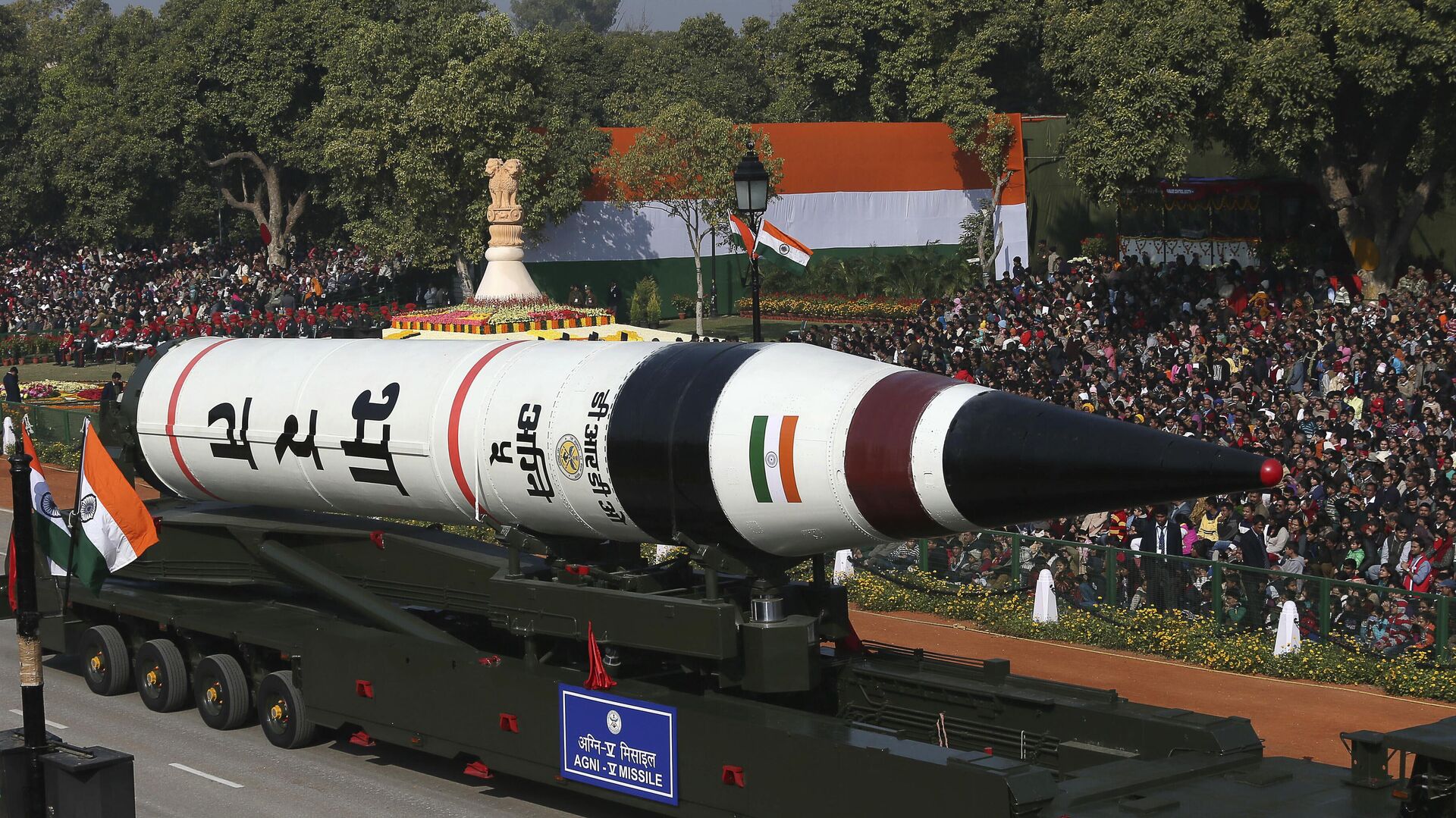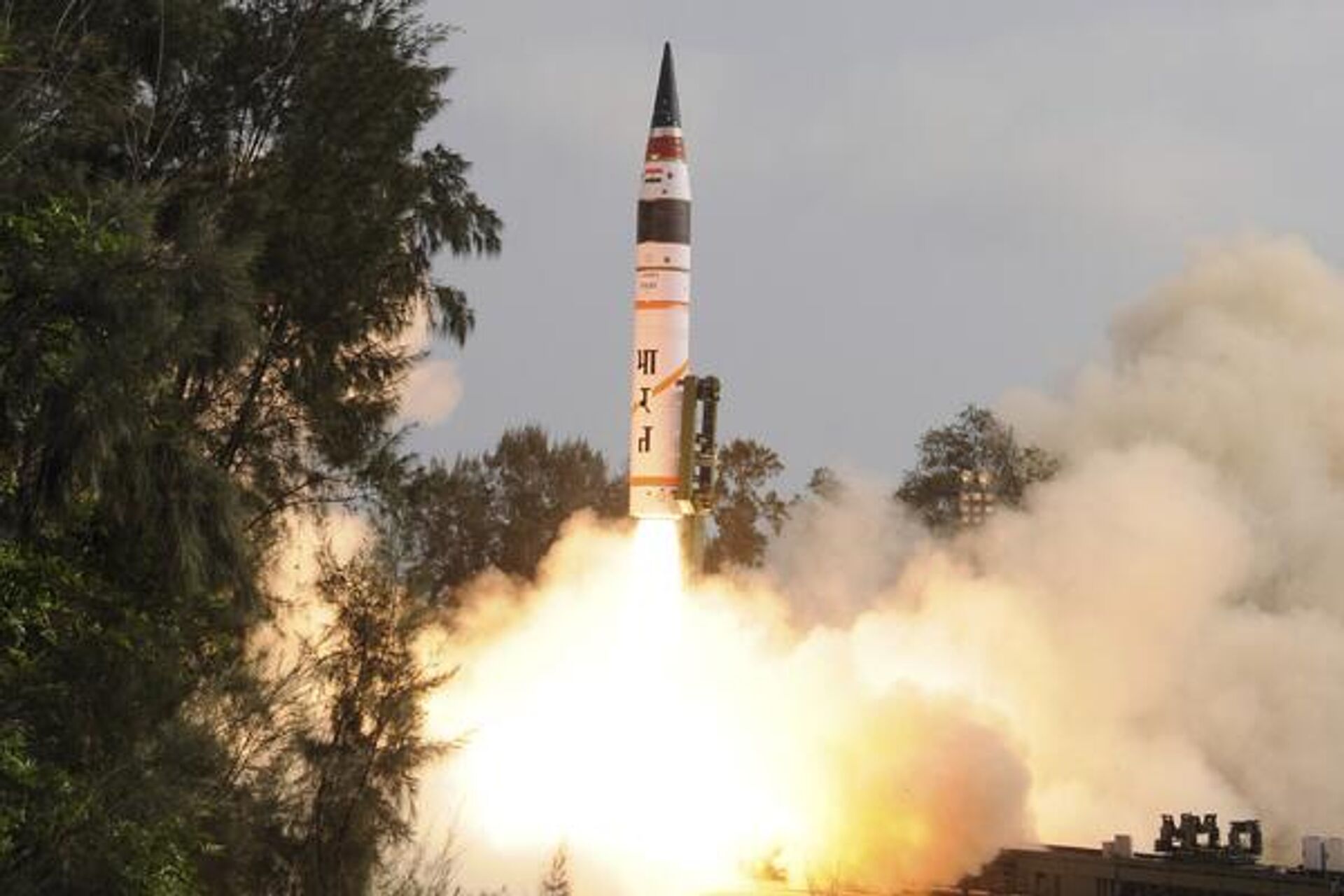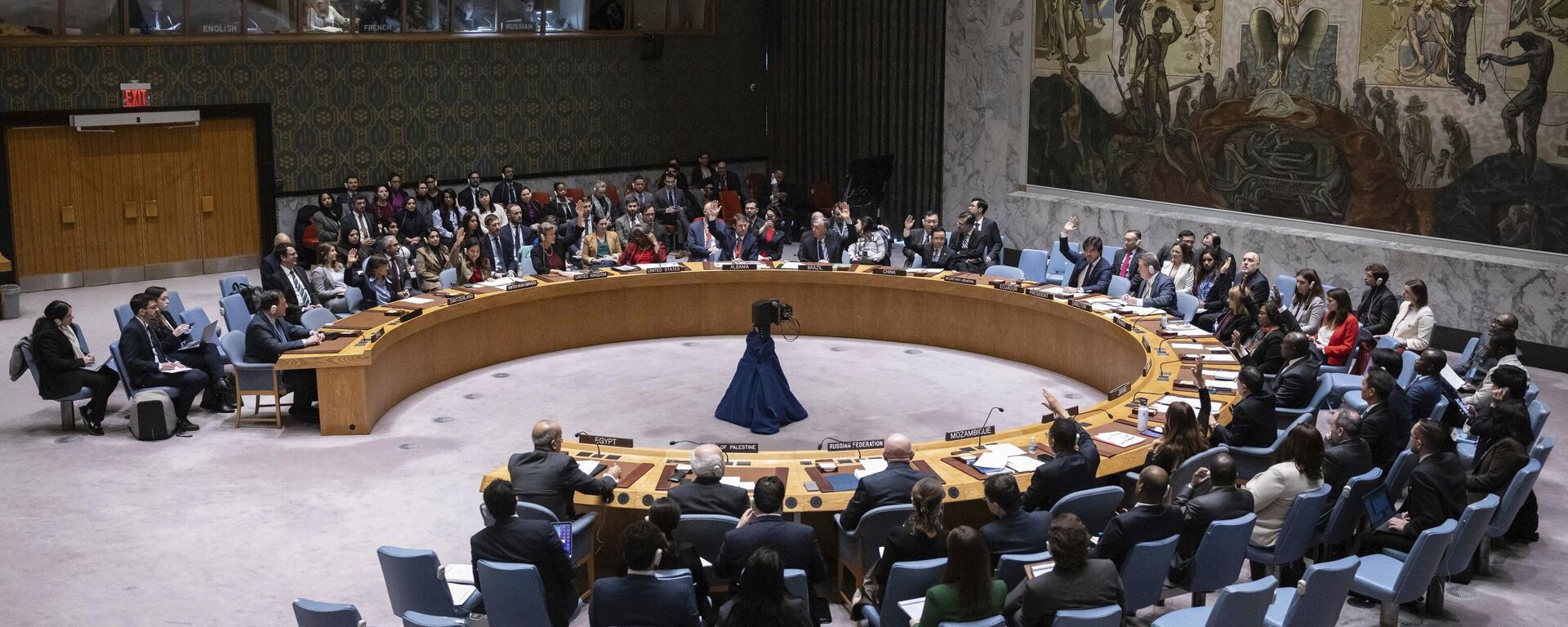https://sputniknews.in/20240418/why-cant-india-give-up-nuclear-weapons-7165919.html
Why Can't India Give Up Nuclear Weapons?
Why Can't India Give Up Nuclear Weapons?
Sputnik India
A controversial proposal to eliminate India's nuclear weapons has ignited a heated debate on the true cost of denuclearization in a region rife with instability.
2024-04-18T19:24+0530
2024-04-18T19:24+0530
2024-04-18T19:24+0530
defenсe news
india
government of india
un security council (unsc)
the united nations (un)
narendra modi
s. jaishankar
ministry of external affairs (mea)
global south
global economy
https://cdn1.img.sputniknews.in/img/07e8/04/04/7036927_50:0:3691:2048_1920x0_80_0_0_a5675a940bf56bf453bfba6d0755c1a7.jpg
The Communist Party of India (Marxist)'s (CPI-M) promise to eliminate all nuclear weapons in India if voted to power has drawn massive criticism from Defense Minister Rajnath Singh.Lashing out at the CPI(M)’s idea of “denuclearising” the country, Singh said that since neighbouring countries like Pakistan and China also have nuclear weapons, talk of eliminating India’s nuclear weapons is a “conspiracy to weaken the country’s security”.Denuclearization’s Impact on India's SecurityTalking about the impact of denuclearisation, Niranjan Marjani, a fellow at Indian think tank Kalinga Institute of Indo-Pacific Studies (KIIPS) and a geopolitical expert said that it would affect India’s security because it acts as a deterrent.He also said that the situation is unstable not only in the neighbourhood but also in the extended neighbourhood and given the threat to India, it is unwise to think of denuclearising the country.The geopolitical expert went on to say that in such an unstable situation, it makes sense for India to be prepared and having nuclear weapons certainly enhances security as it acts as a deterrent for any power to take military action against India, despite the fact that India is using nuclear energy for peaceful purposes.“So, I do think that denuclearisation does not make sense particularly since the security situation overall in the world has deteriorated,” Marjani said.Possession of Nuclear Weapon Not only Criteria for UNSC Permanent Seat“India, Prime Minister Narendra Modi and External Affairs Minister S. Jaishankar time and again have said that the UN does not represent the global order today, it still represents the order that was that was there at the end of Second World War,” he concluded.
https://sputniknews.in/20240123/elon-musk-makes-pitch-for-indias-permanent-unsc-seat-6300695.html
india
global south
pakistan
china
Sputnik India
feedback.hindi@sputniknews.com
+74956456601
MIA „Rossiya Segodnya“
2024
Rahul Trivedi
https://cdn1.img.sputniknews.in/img/07e6/0c/13/136500_0:0:628:627_100x100_80_0_0_72097ff894c7446b70d2efafcb719720.jpg
Rahul Trivedi
https://cdn1.img.sputniknews.in/img/07e6/0c/13/136500_0:0:628:627_100x100_80_0_0_72097ff894c7446b70d2efafcb719720.jpg
News
en_IN
Sputnik India
feedback.hindi@sputniknews.com
+74956456601
MIA „Rossiya Segodnya“
Sputnik India
feedback.hindi@sputniknews.com
+74956456601
MIA „Rossiya Segodnya“
Rahul Trivedi
https://cdn1.img.sputniknews.in/img/07e6/0c/13/136500_0:0:628:627_100x100_80_0_0_72097ff894c7446b70d2efafcb719720.jpg
communist party of india (marxist), cpi(m), denuclearisation, defense minister rajnath singh, conspiracy to weaken the country’s security, niranjan marjani, kalinga institute of indo-pacific studies, denuclearisation to affect india’s security, unsc permanent seat, nuclear weapons, united nation security council, un reforms, india calls for reforms in united nations, prime minister narendra modi, external affairs minister s. jaishankar, indian ocean region, indo-pacific region, fifth largest economy, $4 trillion gdp, nuclear power
communist party of india (marxist), cpi(m), denuclearisation, defense minister rajnath singh, conspiracy to weaken the country’s security, niranjan marjani, kalinga institute of indo-pacific studies, denuclearisation to affect india’s security, unsc permanent seat, nuclear weapons, united nation security council, un reforms, india calls for reforms in united nations, prime minister narendra modi, external affairs minister s. jaishankar, indian ocean region, indo-pacific region, fifth largest economy, $4 trillion gdp, nuclear power
Why Can't India Give Up Nuclear Weapons?
A controversial proposal to eliminate India's nuclear weapons has ignited a heated debate on the true cost of denuclearization in a region rife with instability.
The Communist Party of India (Marxist)'s (CPI-M) promise to eliminate all nuclear weapons in India if voted to power has drawn massive criticism from Defense Minister Rajnath Singh.
Lashing out at the CPI(M)’s idea of
“denuclearising” the country, Singh said that since neighbouring countries like
Pakistan and
China also have nuclear weapons, talk of eliminating India’s nuclear weapons is a
“conspiracy to weaken the country’s security”.
Denuclearization’s Impact on India's Security
Talking about the impact of denuclearisation,
Niranjan Marjani, a fellow at Indian think tank Kalinga Institute of Indo-Pacific Studies (KIIPS) and a geopolitical expert said that it would affect
India’s security because it acts as a deterrent.
“Nuclearisation is not necessarily for causing destruction but if we consider the current global order then it is in a flux particularly considering India’s neighbourhood. From security point of view, India’s neighbourhood is very unstable,” he stated.
He also said that the situation is unstable not only in the neighbourhood but also in the extended neighbourhood and given the threat to India, it is unwise to think of denuclearising the country.
The geopolitical expert went on to say that in such an unstable situation, it makes sense for India to be prepared and having nuclear weapons certainly enhances security as it acts as a deterrent for any power to take military action against India, despite the fact that India is using nuclear energy for peaceful purposes.
“So, I do think that denuclearisation does not make sense particularly since the security situation overall in the world has deteriorated,” Marjani said.
Possession of Nuclear Weapon Not only Criteria for UNSC Permanent Seat
“India wants to be a part of UNSC because it wants to reform the United Nations and India has been calling for UN reforms for a long time. India’s stand has been that the United Nation and particularly UNSC should reflect the world order as it stands today,” Marjani explained.
“India, Prime Minister Narendra Modi and
External Affairs Minister S. Jaishankar time and again have said that the UN does not represent the global order today, it still represents the order that was that was there at the end of Second World War,” he concluded.




